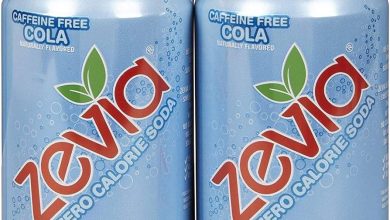Healthy Atlantic Ocean Perch Recipe: Low-Calorie, High-Protein & Nutritious
Ocean Perch (Atlantic, Cooked, Dry Heat)
Ocean perch, specifically Atlantic perch, is a highly nutritious and versatile fish that makes an excellent addition to a balanced diet. Cooked using dry heat methods, such as baking, grilling, or broiling, this fish offers a delicate flavor and flaky texture, making it an ideal option for various culinary preparations. Here’s a detailed look at the nutritional profile of Atlantic Ocean perch, highlighting its benefits and valuable nutrients.
Nutritional Information (per 100g serving)
| Nutrient | Amount |
|---|---|
| Energy | 96 kcal |
| Protein | 18.51 g |
| Total Fat | 1.87 g |
| Saturated Fat | 0.33 g |
| Carbohydrates | 0.0 g |
| Fiber | 0.0 g |
| Sugar | 0.0 g |
| Calcium | 34.0 mg |
| Iron | 0.27 mg |
| Magnesium | 27.0 mg |
| Phosphorus | 300.0 mg |
| Potassium | 226.0 mg |
| Sodium | 347.0 mg |
| Zinc | 0.35 mg |
| Copper | 26 mcg |
| Manganese | 0.013 mg |
| Selenium | 34.6 mcg |
| Vitamin C | 0.0 mg |
| Thiamin (B1) | 0.046 mg |
| Riboflavin (B2) | 0.057 mg |
| Niacin (B3) | 1.215 mg |
| Vitamin B6 | 0.084 mg |
| Folate (B9) | 10.0 mcg |
| Vitamin B12 | 1.72 mcg |
| Vitamin A | 15.0 mcg |
| Vitamin E | 0.91 mg |
| Vitamin D2 | 1.4 mcg |
Allergen Information
Ocean perch is a type of fish and may trigger allergic reactions in individuals sensitive to fish proteins. If you have a known fish allergy, it is advised to avoid consuming this food. Cross-contamination with other seafood is also possible, so caution is necessary when preparing or serving this dish.
Dietary Preferences
Ocean perch is an excellent choice for various dietary preferences and health-conscious eaters. It is naturally low in fat and carbohydrates, making it suitable for low-carb, keto, diabetic, and heart-healthy diets. The high protein content also makes it a great option for those following high-protein or weight-loss diets. Additionally, its low calorie content ensures that it fits well into calorie-conscious meal plans. This fish is also gluten-free, making it a safe option for those with gluten intolerance or celiac disease.
Health Benefits
Ocean perch provides a range of essential nutrients that support overall health. The protein content helps build and repair tissues, while the omega-3 fatty acids contribute to heart health and reduce inflammation. It’s rich in phosphorus, which is vital for maintaining strong bones and teeth, and potassium, which helps regulate fluid balance and muscle function.
The presence of vitamin B12 is particularly beneficial for maintaining energy levels and supporting nervous system function, while niacin (vitamin B3) aids in metabolism and digestion. Additionally, vitamin D2 supports calcium absorption, promoting bone health.
Cooking Advice
Ocean perch can be cooked in various ways to enhance its flavor and texture. Whether baking, grilling, or broiling, dry heat methods are ideal for retaining the fish’s natural moisture and providing a delicious, flaky result. For added flavor, consider marinating the fish with herbs and citrus before cooking, or pairing it with light sauces such as a lemon-dill or tomato-based topping.
Due to its mild taste and firm texture, ocean perch can also be used in soups, stews, or fish tacos, offering a healthy alternative to higher-fat meats. For an extra nutritional boost, serve ocean perch with a side of vegetables or a whole grain like quinoa or brown rice.
Conclusion
Atlantic ocean perch, when cooked with dry heat, provides a lean, protein-packed option that is rich in essential vitamins and minerals. Its versatile flavor makes it a fantastic addition to various meal types, from hearty dinners to light salads. Whether you’re focused on maintaining a balanced diet or simply looking for a delicious and healthy fish dish, ocean perch is a nutritious choice that supports overall health and wellbeing.
With its low-fat, high-protein profile, this fish is ideal for many dietary preferences and can be enjoyed by people seeking to maintain a healthy lifestyle.







